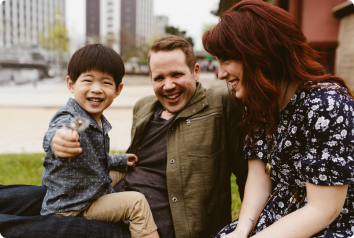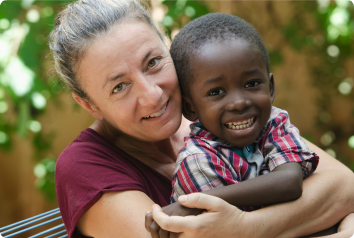 This content was originally published by Creating a Family, the national infertility education and support nonprofit. See the original post.
This content was originally published by Creating a Family, the national infertility education and support nonprofit. See the original post.
Parenting a child who is a different race or culture than you requires extra education and preparedness to be ready for culture and identity issues. You will have the tremendous responsibility of helping your child navigate issues of race, culture, and identity in ways that those who are parenting same-race children do not. How can you raise a transracial adoptee to have a healthy sense of identity and race?
We posed this question to a panel of young adult transracial adoptees during a recent podcast. In a roundtable format, they shared thoughts from the experiences of growing up in families who are different races than they are. The podcast covered many meaningful conversations, and we are grateful for their transparency and willingness to share these parts of their stories.
In Their Own Words
 Ask for help to find cultural and racial experiences for your child and your family to join together.
Ask for help to find cultural and racial experiences for your child and your family to join together.- Take your child to a hair salon or barber of your child’s race or culture. Ask for products, daily care tips, and other supports to care well for your child’s hair.
- Tell your child his story of adoption and the people from whom he came, “often and early” to normalize their experience.
 Give the child access to the culture from which he came through music, literature, the arts, media, food, cultural activities, religious groups.
Give the child access to the culture from which he came through music, literature, the arts, media, food, cultural activities, religious groups.- Create opportunities for your child to take in cultural and racial experiences. However, be attuned to your child’s stage of understanding. Allow her to make some choices about how much, when, and how to engage. Recognize that those choices will change with age and development.
- Learn more for your bene
 fit. Seek mentors from your child’s race or culture. Ask questions. Communicate to your child that you are learning for your personal growth as well.
fit. Seek mentors from your child’s race or culture. Ask questions. Communicate to your child that you are learning for your personal growth as well. - Be an ally to your child by communicating unconditional support and acceptance of her experiences and her process of developing identity.
- Seek out charitable organizations that specifically effect change in the country or culture from which your child came.
- Keep in mind that developing a healthy racial identity is not going to be easy for your child. Ensure that your child knows you are with him for the long haul and will do the hard work together.
- Connect your child to international homeland tours and culture camps and provide other opportunities year-round.
Keep Learning
Our tips are by no means exhaustive, as this panel represented just a few adoptee voices. In fact, it’s not the first time we’ve asked young adult adoptees for input on the topic. However, it’s a great working list to set your mind toward growth. Starting here can help you learn an openness to ideas you might not have encountered with your child yet.


